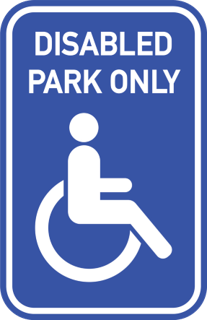|
2023 NEW LAWS
AND CASES
Following is a summary of the laws passed this year. The questions that follow are from attendees to our October 26 webinar about the new laws.
AB 572. Assessment Limitation. Beginning 1-1-25, new associations with affordable housing are limited to assessment increases for affordable housing to 5% + cost of living, not to exceed 10% greater than preceding regular assessment. Does not apply to HOAs with 20 units or less.
“Affordable housing” means a unit occupied by lower and moderate income households.
AB 648.  Virtual Meetings. Beginning 1-1-24, associations can hold virtual without the need for a physical location, provided the notice of meeting contains technical instructions, access to technical assistance, provide a phone option, and the board takes roll call votes. Meetings where member votes are tabulated must designate a physical location. Virtual Meetings. Beginning 1-1-24, associations can hold virtual without the need for a physical location, provided the notice of meeting contains technical instructions, access to technical assistance, provide a phone option, and the board takes roll call votes. Meetings where member votes are tabulated must designate a physical location.
 AB 1033. ADUs Into Condos. Local agencies can adopt ordinances to allow owners to convert their ADUs into condominiums (with association approval), which can then be sold separately from the main dwelling. RECOMMENDATION: Associations should amend their CC&Rs to require 51% (or more) approval by members for condo conversions. In addition, they should include a provision that in the event an ADU is converted into a condo, the owner does not become a member of the association and has no voting rights. AB 1033. ADUs Into Condos. Local agencies can adopt ordinances to allow owners to convert their ADUs into condominiums (with association approval), which can then be sold separately from the main dwelling. RECOMMENDATION: Associations should amend their CC&Rs to require 51% (or more) approval by members for condo conversions. In addition, they should include a provision that in the event an ADU is converted into a condo, the owner does not become a member of the association and has no voting rights.
AB 1458.  Adjourned Meeting Quorum. If an association cannot meet quorum to elect directors, members can adjourn the meeting for at least 20 days and the quorum reduces to 20% (unless the bylaws provide for a lower quorum). The reduced quorum does not apply to recall elections. RECOMMENDATION: If associations do not have a reduced quorum or have one higher than 20%, they should amend their Election Rules to include this provision. Adjourned Meeting Quorum. If an association cannot meet quorum to elect directors, members can adjourn the meeting for at least 20 days and the quorum reduces to 20% (unless the bylaws provide for a lower quorum). The reduced quorum does not apply to recall elections. RECOMMENDATION: If associations do not have a reduced quorum or have one higher than 20%, they should amend their Election Rules to include this provision.
AB 1572.  Potable Water. Beginning 1-1-29, associations cannot use potable water to irrigate nonfunctional turf, which is defined as turf enclosed to permanently preclude human access for recreation, and turf in street rights-of-way and parking lots. Functional turf is defined to include turf located in a recreational use area, community space, or pet exercise areas. RECOMMENDATION: Associations should work with their landscape companies to convert turf to drought resistant plants or artificial turf wherever appropriate. Potable Water. Beginning 1-1-29, associations cannot use potable water to irrigate nonfunctional turf, which is defined as turf enclosed to permanently preclude human access for recreation, and turf in street rights-of-way and parking lots. Functional turf is defined to include turf located in a recreational use area, community space, or pet exercise areas. RECOMMENDATION: Associations should work with their landscape companies to convert turf to drought resistant plants or artificial turf wherever appropriate.
 AB 1764. Election Term Limits. If term limits are in place, an incumbent director must step down when termed out. If a nominee for the board is disqualified, existing directors must comply with the same requirements when the directors are up for election. RECOMMENDATION: Boards should amend their Election Rules to address this issue. AB 1764. Election Term Limits. If term limits are in place, an incumbent director must step down when termed out. If a nominee for the board is disqualified, existing directors must comply with the same requirements when the directors are up for election. RECOMMENDATION: Boards should amend their Election Rules to address this issue.
SB 71. Small Claims Court. Going into the new year, small claims limits will be raised from $10,000 to $12,500 if brought by a natural person. They go from $5,000 to $6,250 if brought by companies (such as associations). The bill also increases the limit on the amount in controversy for limited civil actions from $25,000 to $35,000. Small Claims Court. Going into the new year, small claims limits will be raised from $10,000 to $12,500 if brought by a natural person. They go from $5,000 to $6,250 if brought by companies (such as associations). The bill also increases the limit on the amount in controversy for limited civil actions from $25,000 to $35,000.
 Lender Guidelines. Fannie Mae and Freddie Mac issued new lender guidelines that impact most condominium developments in California. They require more documentation regarding insurance, building inspections, deferred maintenance, and structural safety issues. RECOMMENDATION: Boards should work with management and legal counsel to make a best effort to comply. Otherwise, associations will be listed as "ineligible," thereby making it difficult for owners to sell their units. Lender Guidelines. Fannie Mae and Freddie Mac issued new lender guidelines that impact most condominium developments in California. They require more documentation regarding insurance, building inspections, deferred maintenance, and structural safety issues. RECOMMENDATION: Boards should work with management and legal counsel to make a best effort to comply. Otherwise, associations will be listed as "ineligible," thereby making it difficult for owners to sell their units.
 Corporate Transparency Act. Beginning January 1, 2025, associations with less than $5 million in gross receipts and fewer than 20 full-time employees will need to file the names of their directors, their birth dates, home address, and driver's license information with the Financial Crimes Enforcement Network, a bureau of the U.S. Department of the Treasury. Corporate Transparency Act. Beginning January 1, 2025, associations with less than $5 million in gross receipts and fewer than 20 full-time employees will need to file the names of their directors, their birth dates, home address, and driver's license information with the Financial Crimes Enforcement Network, a bureau of the U.S. Department of the Treasury.
Associations must include the identity of the person with substantial control over the association's finances. The purpose of this highly intrusive and burdensome reporting is to track suspicious activity, money laundering, and terrorist financing, none of which community associations are involved with. The Community Associations Institute is working to exempt associations from this regulation. For more information, see CAI's website.
 LNSU #1 v. Alta Del Mar Coastal Collection. In this case, the court ruled that email communications by directors between board meetings is not a violation of the Open Meeting Act. The court decided that a "board meeting" is defined to mean an in-person gathering of a quorum of directors at the same time and physical location for the purpose of taking action on items of association business. Therefore, email exchanges among directors where no action is taken does not constitute board meetings. Even though this a published decision, it is currently under review for depublication. If that occurs, the case cannot be cited as legal authority regarding emails between directors. LNSU #1 v. Alta Del Mar Coastal Collection. In this case, the court ruled that email communications by directors between board meetings is not a violation of the Open Meeting Act. The court decided that a "board meeting" is defined to mean an in-person gathering of a quorum of directors at the same time and physical location for the purpose of taking action on items of association business. Therefore, email exchanges among directors where no action is taken does not constitute board meetings. Even though this a published decision, it is currently under review for depublication. If that occurs, the case cannot be cited as legal authority regarding emails between directors.
Lake Lindero HOA v. Barone.  This case concerned approval requirements for recall elections. Lake Lindero is a 459-lot planned development. The association's bylaws required a majority vote of the entire membership to remove the board, i.e., at least 230 affirmative votes. When quorum was not met in the first meeting, it was adjourned to a second meeting where quorum dropped to 25% (115 members). The Corporations Code only requires a majority vote once a quorum was established, to recall the board. Of the 190 ballots cast, 156 voted to remove the board. The Inspector of Elections declared the Board recalled and new directors were seated. In the litigation that followed, the court ruled that the Corporations Code controlled and the board was properly recalled. RECOMMENDATION: Boards with recall provisions that conflict with the Corporations Code should amend their governing documents to align with the statute. This case concerned approval requirements for recall elections. Lake Lindero is a 459-lot planned development. The association's bylaws required a majority vote of the entire membership to remove the board, i.e., at least 230 affirmative votes. When quorum was not met in the first meeting, it was adjourned to a second meeting where quorum dropped to 25% (115 members). The Corporations Code only requires a majority vote once a quorum was established, to recall the board. Of the 190 ballots cast, 156 voted to remove the board. The Inspector of Elections declared the Board recalled and new directors were seated. In the litigation that followed, the court ruled that the Corporations Code controlled and the board was properly recalled. RECOMMENDATION: Boards with recall provisions that conflict with the Corporations Code should amend their governing documents to align with the statute.
Fairly-Haze v. Whitesails Cmty. Ass'n. This is an unpublished decision but confirms the obvious when it comes to accommodating a request for disabled parking. In this case, an owner had two parking spaces in an underground parking structure. He was handicapped and requested a space close to the elevator. The association did not have authority to reassign parking spaces because they were all deeded. To accommodate the owner, the board offered him exclusive use of a space outside the garage in exchange for one of his other spaces. Apparently, that was not enough and he sued. The court ruled in favor of the association. RECOMMENDATION: Boards should consult legal counsel whenever they encounter disability issues. This is an unpublished decision but confirms the obvious when it comes to accommodating a request for disabled parking. In this case, an owner had two parking spaces in an underground parking structure. He was handicapped and requested a space close to the elevator. The association did not have authority to reassign parking spaces because they were all deeded. To accommodate the owner, the board offered him exclusive use of a space outside the garage in exchange for one of his other spaces. Apparently, that was not enough and he sued. The court ruled in favor of the association. RECOMMENDATION: Boards should consult legal counsel whenever they encounter disability issues.
WEBINAR QUESTIONS
• Regarding Corporate Transparency, won't most HOAs have more than $5 million in assets when considering the property they own.
ANSWER: When it comes to condominium developments, common area should not be considered an asset since it cannot be sold. They will likely consider assessments to be gross receipts and qualify associations as potential money launderers. It boggles the mind. Everyone should support CAI's efforts to exempt homeowner associations from the regulation.
• Did you say Corporate Transparency requirements begin 1-1-24 for existing corps? So, current HOAs have to report soon? Hopefully I heard wrong.
ANSWER: The regulation goes into effect January 1, 2024 but the filings are not due until January 2025.
• What if the people who attend meetings also sent in a ballot--are they counted twice?
ANSWER: No, they are counted only once using the ballot.
• Where can one find how mediation works?
ANSWER: YouTube has a number of good videos that explain "How Mediations Work."
• What is the logic of an unpublished decision?
ANSWER: Unpublished decisions provide valuable insight on a court's reasoning and how similar cases might be handled. To become a published decision with binding precedent, courts use the following criteria to determine if the case:
- Establishes a new rule of law;
- Applies an existing rule of law to facts significantly different from those in published opinions;
- Modifies, explains, or criticizes an existing rule of law;
- Provides a new interpretation, clarification, criticism, or construction of a provision of a constitution, statute, ordinance, or court rule;
- Addresses or creates an apparent conflict in the law;
- Involves a legal issue of continuing public interest;
- Discusses the development of a common law rule or the legislative or judicial history of a law;
- Invokes a previously overlooked rule of law, or reaffirms a legal principle not applied in a recently reported decision; or
- Includes a separate concurring or dissenting opinion, inclusion of which would contribute to the development of the law.
• Our HOA does not have reclaimed water available to us, ONLY potable water. How does the irrigation restriction affect us?
ANSWER: You may need to replace your grass with artificial turf or make sure the area in question is available for recreation, whether human or pet.
• If a board receives a petition to remove only 1 board member and has the required 5%, is that director automatically removed or is a vote still needed, and if so, what percent is needed?
ANSWER: A vote by secret ballot must be held. It gets complicated if cumulative voting is involved. See "Removal of Directors."
• Do planned developments have to follow Fannie Mae?
ANSWER: The lending guidelines at issue apply to condominiums and housing cooperatives, not planned developments.
NOTE: All new statutes and cases, past and present, are posted on our website.

Information With Humor. I love your newsletters, Adrian. They are informative with humor. Please continue them. -Michael G.
RESPONSE: Thank you! (FYI, Some people don't like my humor.)
Relationship Discrimination #1. The comment about people over 55 dating is offensive and ageist. –Heidi Q.
RESPONSE: Big smile.
Relationship Discrimination #2. Love in the air, or not on the guest list? -MD
Relationship Discrimination #3. I have to tell you that this might be my favorite newsletter ever. Love is in the air, indeed. My senior communities have the most active social lives of all! -MW
Relationship Discrimination #4. Love your comment on the 55 and over dating thing. Can't tell you how many older guys seem to have younger "wives" on cruise ships. –Richard S.
Judge Stirling. A former board member in our association met Larry Stirling when Larry served as a judge in San Diego. Judge Stirling convicted him of fraud and embezzlement involving his clients. He was convicted but again involving money. It’s a small world and I love telling the story of how I met someone that actually met Larry Stirling. Thanks for all your good work informing the public in an entertaining way of the ins and outs of association governance. -Paul S.
COMMENT: Judge Stirling is a good man and a wonderful partner in the firm. We could use more like him.

|